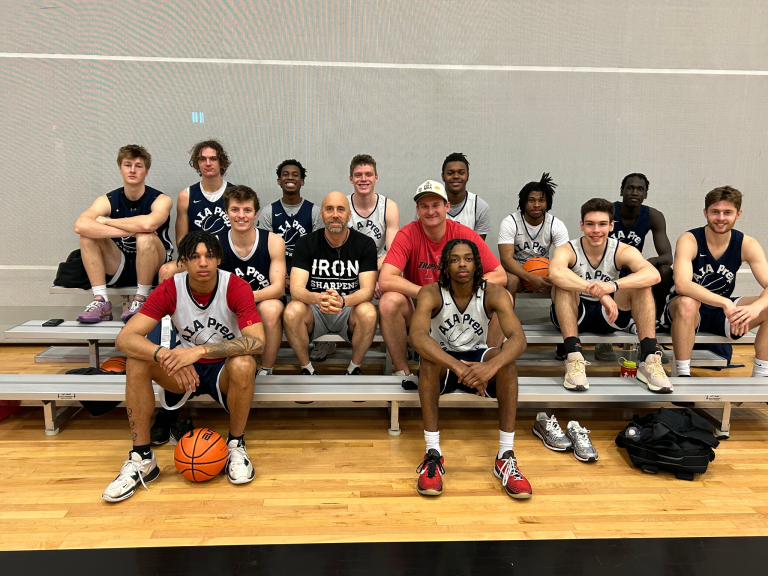Article
3 Ways to Confront Coaching Pressures
Courageous coaches do these three things
Quinn McDowell
coach winning character
Sign up for all the latest articles, resources, and tools to help you develop character in the athletes you lead.
Pressure, anxiety, and fear of failure are things that all coaches and athletes will experience at some point in their careers. The pressure to win, to perform at a high level, and to deliver results is a reality for anyone who steps on the field as a coach or player. In addition, we live in one of the most anxious cultures in history.
According to researchers, anxiety, depression, and mental health issues have snowballed in recent years to historic highs. A cocktail of factors — less socialization due to social media, generational parenting trends that have led to overprotection, and a de-emphasis on character formation and virtue development to mention a few — have colluded to make our age one of the most anxious times in human history.
In particular, coaching can be a fearful profession. Worries about the next game, the next recruit, or the next loss can implant themselves in our minds as fear becomes our prevailing emotion. Living in constant fear has the power to make us shortsighted and shallow in our approach. It encourages us to trade a long-term pursuit of excellence for expedient solutions. Any profession that demands clear results (i.e. a winner and loser) has the power to control our minds and direct our approach.
For coaches, athletes, and professionals who live in competitive environments, here are a few suggestions for how we can fight anxiety and remain purposeful in our roles as leaders.
Courage does not eliminate fear, but gives us the strength to stand up in the midst of uncertainty.
DECIDE WHO YOU ARE AHEAD OF TIME
If you don’t decide who you want to become, the world (or your current circumstances) will make the choice for you. An intentional selection of your guiding values, principles, and purpose is critical to maintaining a non-anxious presence in the midst of uncertainty (see Edwin Friedman’s theory of differentiated leadership for more of what constitutes a “non-anxious presence”) . Making a decision in the present about who you want to become in the future (i.e. how your “future self” is going to behave) will guide your decision-making when things become difficult. Aligning your past, present, and future “selves” creates integrity and alignment in how you fight against fear and anxiety.
HAVE THE COURAGE TO LIVE OUT YOUR CONVICTIONS
Once we’ve decided “who” we want to become, we must practice courageously living out those convictions. Courage is not the absence of fear, but rather the presence of a more powerful purpose. Courage does not eliminate fear, but gives us the strength to stand up in the midst of uncertainty. Anxiety can cripple us in so many debilitating ways if we allow our fear of the future to distract us from our purpose in the present. We become confident in who we’ve decided to become when we courageously confront our anxiety.
SUBMIT TO A HIGHER PURPOSE
The presence of a higher purpose brings peace from a higher power. For Christians, submitting to a higher purpose means giving your life away. When you become a means to an end for someone else, your focus on purpose drowns out your anxiety and fear and is replaced by the strength of God’s Spirit. Jesus tells us to be anxious about nothing, but instead to give thanks for all of His good gifts. In return, we are promised peace that will guard us from insecurity, fear, and anxiousness that can distract us from our purpose. Purpose is the path to meaning when its employed in the service of others and the point of purpose is figuring out how you will serve others. Ultimately, if you don’t have a plan to serve, then you don’t have a purpose.
The presence of fear is inevitable, but the power of fear can be neutralized when we decide who we want to become, have the courage to live out those convictions, and submit ourselves to a higher purpose. The type of leaders we are capable of becoming is directly tied to how we handle anxiety and fear in a profession that constantly demands results. Anxiety has the power to distract us from our purpose of serving, guiding, and leading the people God has placed in our care.
3 WAYS TO LEAD COURAGEOUSLY
Decide who you are ahead of time
Have the courage to live out your convictions
Submit to a higher purpose
READ THE LATEST
Where sport culture, relationships, character, identity, and faith collide.

